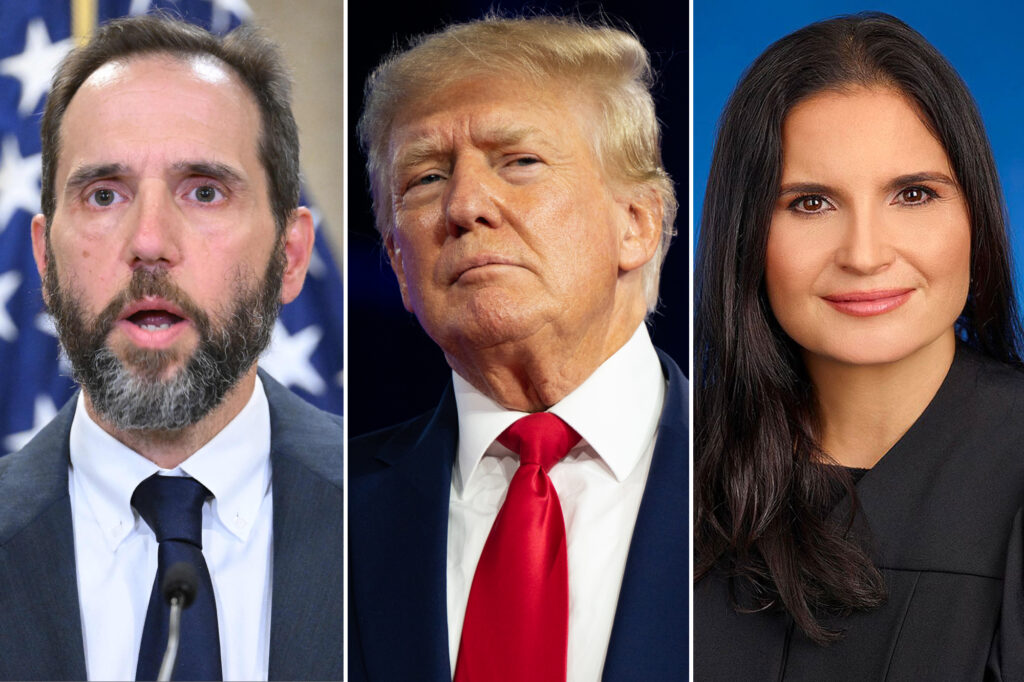Politics
JUST IN: Judge Makes Decision On Releasing Jack Smith’s Trump Report

A federal judge has authorized the release of a key segment of Special Counsel Jack Smith’s investigation into President-elect Donald Trump’s alleged election interference. The ruling, handed down Monday, paves the way for the Justice Department to publish Volume I of the highly anticipated report, while Volume II remains on hold for now. The decision, issued by U.S. District Judge Aileen Cannon in South Florida, denies the emergency motion filed by two of Trump’s co-defendants, Walt Nauta and Carlos De Oliveira. Both men, who worked closely with Trump at Mar-a-Lago, sought to block the release of Volume I, arguing it could prejudice ongoing legal proceedings.
Judge Cannon disagreed, stating that the first volume, which pertains to the 2020 election interference case, does not directly implicate the defendants. In her ruling, Cannon claimed that the report’s first volume does not reference the classified documents case involving Nauta and De Oliveira, a matter still under legal appeal. “Based on these representations, the Court sees an insufficient basis to grant emergency injunctive relief as to Volume I,” Cannon wrote. “The Court’s Order Granting Defendants’ Motion to Dismiss Superseding Indictment Based on Appointments Clause Violation is ‘confined to this proceeding’, and hence this Court’s authority to enforce its own orders is similarly confined to this proceeding and to the remaining defendants in this proceeding.” However, Cannon reserved judgment on Volume II, which addresses Trump’s handling of classified documents.
A temporary injunction remains in place to prevent its release until a hearing is held later this week. The Volume reportedly details Smith’s findings regarding alleged efforts by Trump to overturn the 2020 election results. While the exact contents remain sealed until the injunction expires. The release is expected as early as midnight Tuesday. The Jack Smith investigations focus on two major allegations involving President-elect Donald Trump: election interference during the 2020 presidential election and mishandling classified documents after leaving the White House. The election interference probe scrutinizes Trump’s alleged attempts to overturn the 2020 results through pressure campaigns on state officials, spreading unsubstantiated claims of widespread voter fraud, and pushing a plan to submit alternate slates of pro-Trump electors to Congress. These actions culminated in the events of January 6, 2021, when a mob breached the Capitol as Congress certified the Electoral College results.
Meanwhile, the classified documents investigation centers on the discovery of sensitive materials at Trump’s Mar-a-Lago estate. Prosecutors allege Trump retained national defense documents and, with the help of aides Walt Nauta and Carlos De Oliveira, took deliberate steps to obstruct federal efforts to retrieve them. Special Counsel Jack Smith, appointed in November 2022, compiled the findings in two reports. While Trump has dismissed the investigations as politically motivated, legal challenges persist, with federal courts considering the public release of Smith’s reports amid ongoing cases.
The Justice Department has maintained that it does not infringe on the rights of Nauta or De Oliveira, who face separate charges of conspiring with Trump to conceal classified documents at Mar-a-Lago. Cannon’s ruling reiterated this, stating that the report’s first volume is unrelated to the classified documents case. The second volume of the report, which delves into Trump’s handling of classified materials, remains a focal point of legal wrangling. The Justice Department has argued for a limited release to select members of Congress, citing public interest and the need for transparency. Cannon, however, has concerns about releasing Volume II prematurely, highlighting potential risks to the defendants’ fair trial rights. A hearing on the matter is scheduled for January 17, with both sides expected to present arguments on whether the volume should remain sealed. “The release of Volume II, even on a limited basis, risks irreversibly and substantially impairing the legal rights of the defendants,” Cannon wrote.

